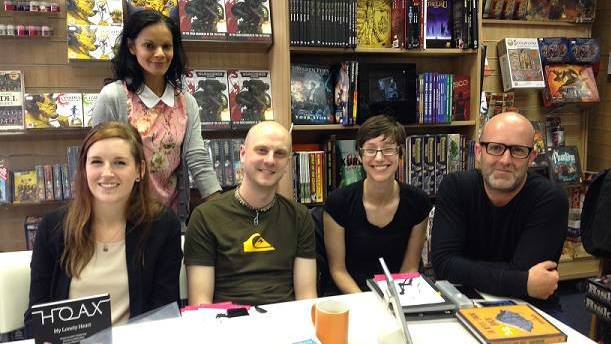
‘State of the Small Press Nation’ was the umbrella title for Broken Frontier’s ground-breaking series of reports last year on the UK’s rapidly expanding self-publishing world and the challenges it faced going forwards. Micropublishers, small pressers, event organisers, printers and industry commentators all contributed to give their thoughts on the scene from a variety of viewpoints and perspectives. Subjects discussed included whether the growing number of UK shows was sustainable, if creative output was matching audience size, how to reach non-traditional audiences, and how to build up a profile. You can browse the full archive of articles here.
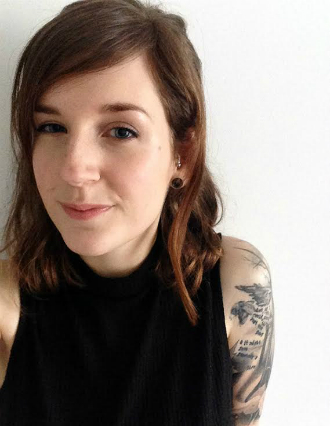 The series recently returned to BF as a semi-regular run of curated guest blogs from some of those best placed to talk about the trials and triumphs of publishing your own comics. Broken Frontier 2015 ‘Six Small Press Creators to Watch‘ artist Rozi Hathaway is the latest face on the scene to contribute today.
The series recently returned to BF as a semi-regular run of curated guest blogs from some of those best placed to talk about the trials and triumphs of publishing your own comics. Broken Frontier 2015 ‘Six Small Press Creators to Watch‘ artist Rozi Hathaway is the latest face on the scene to contribute today.
Hathaway had a dream start to her journey into comics as part of the line-up of Ravi Thornton’s HOAX Psychosis Blues graphic memoir in 2014 alongside the likes of Bryan Talbot, Karrie Fransman, Hannah Berry, Rian Hughes, Julian Hanshaw and Mark Stafford.
Since then she has gone on to self-publish comics often focused on the folkloric and the magical like The Red Road, Njálla and Ø, edited two issues of Sneaky Business and been a regular fixture in UK anthologies like Dirty Rotten Comics, Home and A Bit of Undigested Potato. She was also one of the featured artists in the Broken Frontier Small Press Yearbook.
Below she shares her top tips on building a profile in a crowded self-publishing arena and looks back on her successes and mistakes along the way…
It honestly feels like a lifetime since I first sat there thinking “Is this really something I could do..? Can I scrape the money together? Would anyone actually want to buy it? Will the thing I poured my heart and soul into be a massive joke to anyone reading it?” All really helpful and constructive questions, I know, but I’d like to think that the majority of self-publishers have had those same thoughts too at some point or another. It may feel like a lifetime ago, but in reality only two years have passed since I starting contemplating printing The Red Road, and throwing myself into the self-publishing world.
Rozi taking part in the Drawing Parade at Comica Comiket in May 2016
As John-Paul Kamath says in his very interesting ‘10 years of lessons learnt’ article for the last guest piece on ‘State of the Small Press Nation’, there are a lot of articles on how to get started into UK small press comics. I personally put them into three categories; there are a whole load of what I’ll call the “Glass Half-Full” style articles; you can do anything if you put your mind to it, and all that jazz. There are also a few really relevant and candid articles we’ll call the “Truth Bombs”. And then, there’s a few “Negative Nancy” pieces telling you that you’ll fail miserably unless people know who you are.
To be fair, all of them are pretty much correct in some way, shape or form. I personally can’t give an accurate account of what the best way into self-publishing is as I’m still learning all the time, but I’m gracing you here today with five pointers from my horrendous mistakes and happy accidents along the way. So here it goes.
“Hey, look at me!” – Getting noticed in a world of SO MUCH STUFF ALL THE TIME
I started my blog back in August 2012; the vaguely good, the very bad, and the downright ugly. All of it went up on my blogspot (accidentally-but-kinda-thankfully deleted that account at some point, so you’ll have to take my word for it now). Social media has changed a lot in the past four years, and when I started my blogspot I was semi-regularly documenting my starting back up drawing after a 3-year hiatus, and sharing it on Twitter, Facebook, Tumblr and anywhere that anyone would listen.

Blogging actually did work for me, gaining me my first ever comics job from Ravi Thornton to create 6 pages for HOAX Psychosis Blues (below). But, blogging is definitely not a magic wand. Even now I spend hours getting a post ready and sometimes only a handful of people take notice.
My general belief, having been actively blogging about my work for almost four and a half years, is that although it can sometimes feel like a massive waste of time it can be a great way of communicating and documenting everything you do and getting others to share it around. The mass of stuff on the internet now does kind of feel like waving your arm for the attention of a crowd that’s hundreds of miles away, but all it takes is one person to dig your work, share it around, and it makes it all worth it.
Plus, if someone discovers my work now they have two and a half years of blogs on my website to read through and see how some of my work started out through to its completion.
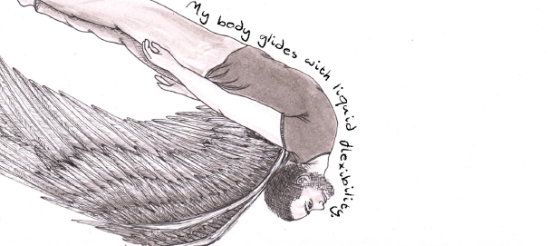
Just… how?
Back in 2014, once HOAX Psychosis Blues was out in the world and I started writing and drawing my own comics, I kind of figured (after some persuading from Andy Oliver that he won’t let me live down…) that I should do that whole printing thing. I started with a local and excellent printing company, but ultimately it’s something that I couldn’t keep up; sometimes, as much as you want something, the costs aren’t feasible.
The first run of The Red Road (below) was a batch of 100 printed on beautiful recycled paper, and after selling out of those and doing a second run of 100, the price of the paper jumped up, and I had to move on. I’ve tried several different printers in total, and really it is down to personal preference, but I can honestly say when a printer doesn’t stick to their promised turnaround time and you have to end up dragging your suitcase of stock to their warehouse to collect 100 comics the night before the biggest festival of the year, you’ll learn to stick with the trusted and favoured guy (mine being Comic Printing UK)!
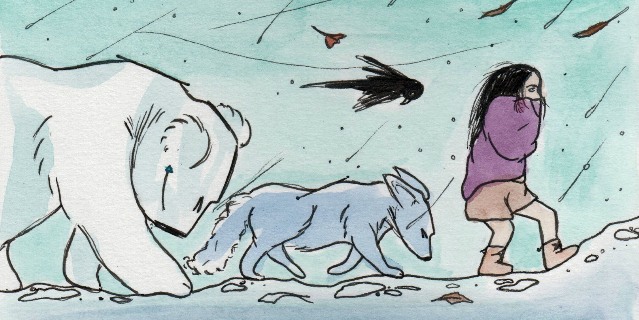
There is, of course, printing your own work too, but as I don’t really have the capabilities I wouldn’t be able to give a huge amount of advice on that one. Plus, I’m a perfectionist and most machines aren’t… So, we don’t get along.
Tabling and festivals
My first tabling experience was with The Red Road at the Alternative Press Takeover in May 2015. As I was a fresh-faced self-publisher I was only allowed to have my work on the shared First Publications Table and I barely sold enough to cover my £3 meal deal. It was a long day with nowhere to sit, a constant breeze blowing our work everywhere and no other comics tables nearby. On the bright side, every other comic event since has been an improvement! Starting out for me felt lonely, expensive and cold, but it got dramatically better and I made some good friends there, not to mention meeting Alex Hahn at Takeover who has since been in Sneaky Business vol. 1 and 2.
Rozi’s work on the Broken Frontier ‘Six to Watch’ table at CECAF in 2015
Having such a terrible first tabling experience made the next few seem like I’d just won the lottery if I managed to cover my train fare. Other things can help, like visiting MancsterCon as a punter in 2014 and tweeting to death about it led to applying for a table in 2015 and being asked to appear on a panel! Sat next to those same gents that I bought stuff from the previous year was completely daunting, but Chris Welsh, Tom Ward and Andrew Tunney either didn’t notice my insecure fear of being in an undeserved panel seat or thought it best to leave that mumbling, heavily perspiring nervous person to it.
Rozi’s table at this year’s Thought Bubble
Visiting comic festivals before I tabled myself seems like it would’ve been a really good idea. I never thought about it, as at the time I lived somewhere which didn’t have any self-published or small press events or stores nearby, so I bought everything online. But if you can, get out and see how other people present their work and themselves, it’ll help you form an idea of the kind of stand you want to have and how to place yourself amongst others. My tables have gone from plain stacks to all sorts of props, with the last one even including fake snow.
How do I get my awesome stuff into shops?
This can be a very daunting talk. On the one hand, when you know that stores take small press but just won’t respond to your emails it can feel like a personal slight, but I’ve just found it best to take it on the chin and carry on. At the end of the day, they must see a massive amount of comic creators wanting to have their work in stores and there always limited space and resources to cater to absolutely everyone; put yourself in their shoes and these testing times get more understandable. Broken Frontier has an excellent article about stores which are small-press friendly, and that’s a great starting point.
If you manage to get stores to take your work (yippee!), I find that even if it’s a high percentage commission from the store, stores buying stock outright is a far better deal than sale or return. Sale or return can be great if you live local to the stores, but it’s still a lot of work to keep on top of it and to make sure you take or receive the paperwork so you have it all on record – it’s all too easy to forget which store has how many copies of what and when.
Rozi’s comics in Gosh! Comics and Travelling Man in Manchester
For that initial push with The Red Road I sent out free copies to a bunch of stores and some of them never responded, so instead nowadays I approach shops via email with a PDF copy or a link to my website page – or even better, a review. However, a free copy can be great to build a connection with the people who run comic stores, so it that’s down to individual choice.
Things you should definitely do: group projects/anthologies
The first anthology I was approached to do was Keara Stewart’s A Bit of Undigested Potato with a one-pager about nightmares which was published four months after I brought out The Red Road, in May 2015. She actually asked me to be a part of the collection rather than me applying for it, which was really, really nice. Anthology submissions helps keep up the momentum of producing continual work without the hard tasks of printing, worrying about sales and pushing promotion.
Short stories are challenging in their own right, but the beauty of them is that they allow for experimentation. The first anthology I ever created comic work for a submission and was actually accepted into was Dirty Rotten Comics #5 published in August, and a solo illustration for the Art Aid Nepal anthology Home in October/November 2015. After that it all got super busy… And doing all these anthologies led me to create the first Sneaky Business anthology, which has had its second bumper volume released in October of this year.
Continually submitting to Dead Singers Society by Good Comics has also helped form friendships that may or may not have led to them publishing my next book out in Spring 2017, but I’m sure it helped! So I cannot stress enough just how much of a game-changer anthologies and group projects have been for me.
Don’t get me wrong, I have made a LOT of terrible work that I’ve submitted for competitions and anthologies that has barely seen the light of day, but with each comic I learn something new, and more recently ones that haven’t been getting in I have self-published myself anyway. It’s also a great way to meet and get talking to other creators!
***
Well, there we have it. Pure wisdom, from someone who’d rather wear multiple socks, layers and blankets than put the central heating on, so take from it what you will. Raising your profile can seem like an incredibly daunting task and most of the time I’m pretty sure I’m talking to thin air when I’m trying to share my work. But, ultimately creating comics has been the most rewarding thing I’ve ever done in my life, and I wouldn’t change it one bit.
Hopefully there’s something here that an aspiring self-publisher can take away, and if you can take one thing away from my pretending-to-be-full-of-wisdom, it’s that even despite being ignored, being cold and not selling anything at times, or those pesky financial sacrifices, making comics is still the best thing in the world. But hey, I might be a tad biased…
For more on the work of Rozi Hathaway check out her site here and follow her on Twitter here. You can buy her comics from her online store here.
For regular updates on all things small press follow Andy Oliver on Twitter here.





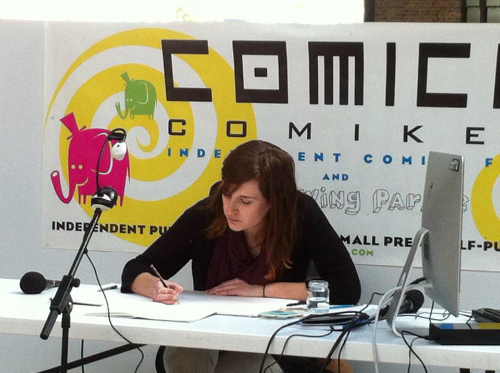
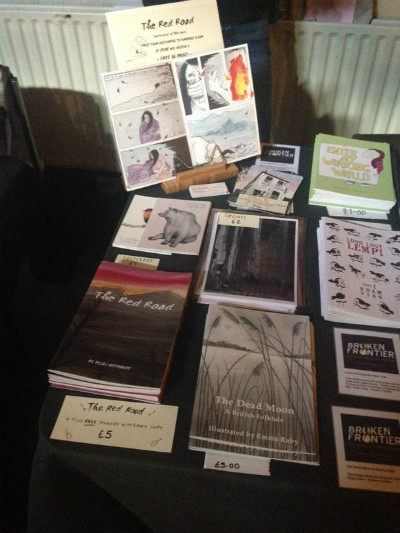
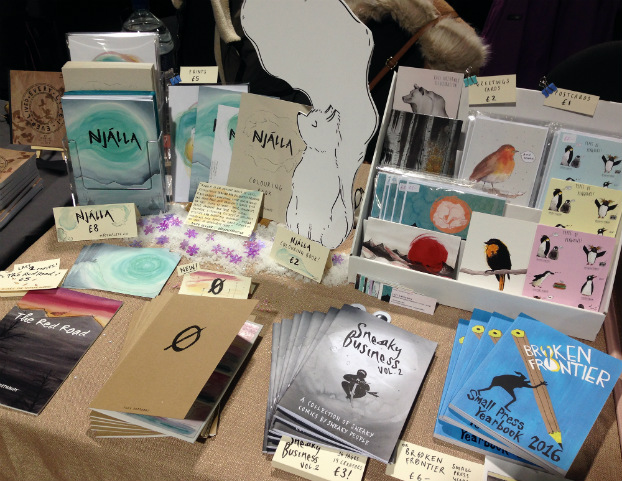
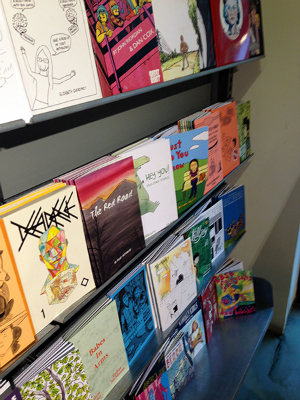
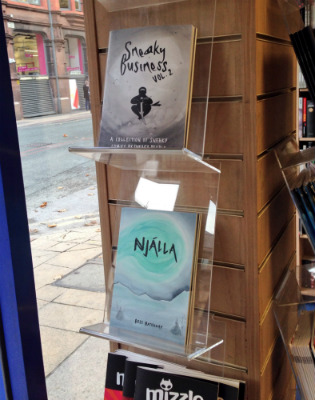
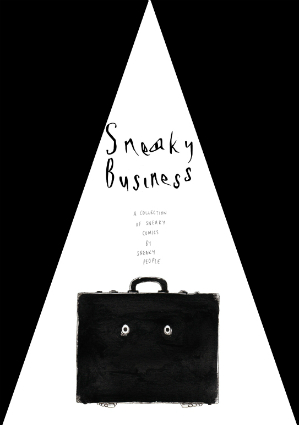
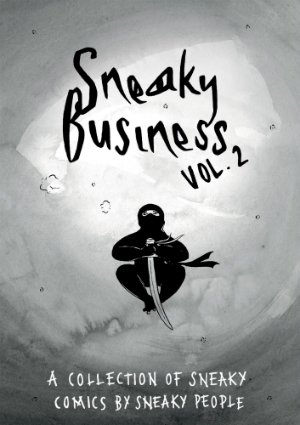
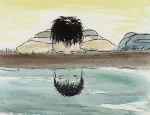

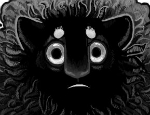

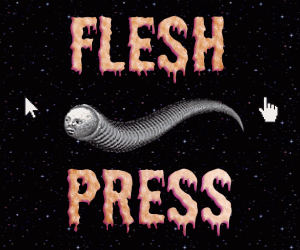





[…] Better late than never, my journey into small press is now up on Broken Frontier’s site, and you can read the article here. It was a bit strange to go back through my old blogs and pick out the highs and lows of my journey […]
[…] Rozi Hathaway sure has dominated the Broken Frontier website this year, and she caps off 2016 with a post offering advice and ideas for small-press and self-published comics creators who are trying to […]